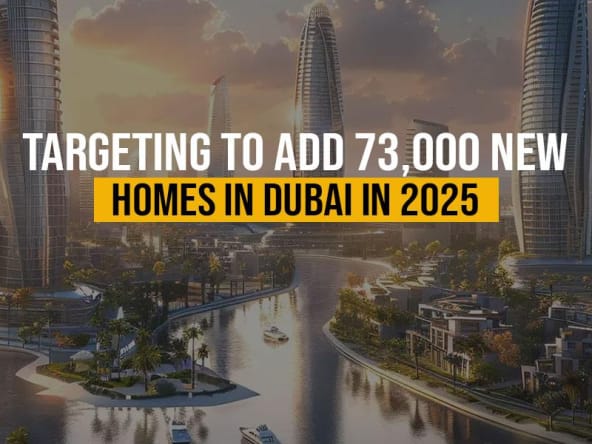Donald Trump is scheduled for his first 3-day international visit. This diplomatic tour will allow him to visit the UAE, Saudi Arabia, and Qatar. He aims to enhance US-Gulf relations. The visit is appropriate, and they are trying to leverage their strategic power to score economic and security returns from Washington.
A Strategic Tour: Timing, Locations, and Context
The plan for Trump’s Gulf tour is planned very well, starting with Riyadh, Saudi Arabia, where he will join a high-profile Gulf summit on Wednesday. His journey will be extended to Qatar on the same day, and the UAE, where he will finish his visit on Thursday. This must be his second foreign trip following the resumption of his term in office, after he visits Rome, the country of the burial of Pope Francis, in April this year.
This visit demonstrates the US administration’s intent to improve bilaterally important Gulf allies even more, a proxy for the significance of strategic partnerships in a nascent global order. Gulf nations, in turn, view it as an opportunity to improve their position in Washington, cut defence and economic deals, and bring peace to the region.
Key Objectives of the Visit
1. Economic Diplomacy
Trump’s main goal during his visit to the Gulf is to promote American economic interests by getting big deals from Gulf countries. This drive is due to the need to stimulate American industries against recent financial challenges. Other topics of focus on this economic discussion will include;
- Energy Sector Investments: Trump seeks to woo Gulf investments in the American oil, gas, and renewable energy sectors through technology sharing and joint ventures.
- Technology Partnerships: Touting the American technology companies and attracting the Gulf’s investments in artificial intelligence, cybersecurity, and digital infrastructures.
- Manufacturing Expansion: Inspiring Gulf states to invest in American manufacturing, automotive, aerospace, and electronics industries to trigger domestic job creation.
- Defence Contracts: Lobbying for billions of dollars worth of defence contracts, such as complex arms, military equipment, and maintenance contracts.
2. Regional Security and Defence
An important aspect of Trump’s visit will be negotiating further security and defence arrangements with Gulf states. This will entail high-level discussions about:
- US Military Presence: Examining the extent of American military presence in the region, to stabilise it, and increase joint military exercises.
- Counterterrorism Collaboration: Enhancement of intelligence sharing and counterterrorism operations will help defeat the extremist groups in the region.
- Arms Sales and Defence Cooperation: Completing arms transactions for sophisticated weapons, defence systems, and military training programmes for Gulf allies.
3. Diplomatic Mediation
Trump’s visit also aims to terminate existing regional wars diplomatically. His administration will focus on:
Israel-Palestine Mediation: Relighting negotiations between Israel and Palestine and pursuing confidence-building measures to promote peace.
- Saudi-Israel Normalisation: Enabling dialogues to make gains in the normalisation between Saudi Arabia and Israel may change the remapping of diplomatic borders in the region.
- Gaza Ceasefire Initiative: Testing the potential for a sustained ceasefire in Gaza with serious mediation attempts.
The strategic mix of Trump’s economic, security, and diplomatic goals during his Gulf visit confirms his administration’s larger Middle East policy priorities. The consequences of such discussions can considerably affect the US Gulf relations and the region’s stability.

Trump UAE Visit: Economic Diversification and Advanced Technology
During his visit to the United Arab Emirates, former US President Donald Trump will have high-level talks with the UAE president, Mohammed Bin Zayed Al Nahyan. Improvement of the bilateral cooperation in economic development and advanced technology will be the central point of such debates. Among the areas of focus, the following will be:
1. Expanding Investment Initiatives
One of the significant topics is the recently disclosed investment strategy of the UAE, with a substantial amount of $1,4 trillion announced in March. This widely embraced strategy aims to turn the UAE into a major player in the global economic world by encouraging renewable energies, sustainable infrastructure, healthcare, and digital transformation.
It is said that the president and the UAE officials are discussing options for U.S. businesses to participate in grandiose projects such as infrastructure and high-tech manufacturing. Talks will probably cover establishing the amiable and inviting conditions to attract American companies to invest in the UAE, as well as tax exemptions, procedures, and financial involvement.
Read it also: Trump Tower Launches in Dubai
2. Strengthening Technology and AI Collaboration
If the dialogue is not part of the deal, a key part of the talk will be the potential to review Biden-era export controls on high-end U.S. techs to Emirati interests. President Trump will probably continue fighting for fewer government regulations, which could open the doors to frontier American technology such as artificial intelligence, quantum computing, and cyber solutions.
The UAE’s belligerent approach towards digital transformation is aligned with this cause. The country aims to become a world leader in AI and other outstanding technologies by 2031. UAE’s Ministry of Artificial Intelligence may develop concepts of joint research, transfer technology, and talent exchange programs with leading U.S. tech companies.
3. Expanding Space Cooperation
The two countries will further discuss prospects of cooperation in space research and exploration, which were in focus during the previous meeting, such as the successful UAE achievements in space exploration, the exploration mission of the Mars Hope Probe, and a planned lunar rover project. With the interest in the growth of the economy, superior technology and space ventures, the visit by Trump to the UAE can effectively broaden the bilateral relations, thus opening new frontiers of American economic development, while supporting the UAE in the progressive Vision 2031 and Vision 2071 strategies.

Strategic Partnerships of Saudi Arabia
Saudi Arabia is becoming the key ally of the United States and strives to build stronger relations with it in the spheres of defence, technology, and oil. Key points include:
- Economic Agreements: Trump will promote $1 trillion in Saudi investment in US industries, building on an existing $600 billion promise.
- Nuclear Cooperation: Saudi Arabia will seek support from the US for its civilian nuclear programme, driving its energy capacities.
- Defence Ties: Topics may include a large-scale defence and trade agreement, selling high-tech US military equipment.
- Saudi-Israel Normalisation: Discussions about Saudi-Israel normalisation, which previously stalled when the Gaza conflict broke out, could start again.

Qatar: Defence, Regime Security, and Diplomatic Mediation
Qatar, the country that hosts the most significant U.S. military base in the Middle East (Al Udeid Air Base), is poised to take advantage of Trump’s visit further to enhance its military and diplomatic relations with the U.S.. Placed strategically and in possession of diplomatic influence, Qatar seeks to acquire the support of America on several fronts:
1. Regional Mediation and Diplomatic Initiatives
Being one of the essential diplomatic actors during the Afghan peace process, Qatar could ask for the support of the U.S. to remain a mediator between the Taliban and Afghan factions and the interested international parties. Qatar, with its experience mediating Sudanese peace deals, might suggest a renewed diplomatic effort to stabilise Sudan, dealing with issues of humanitarian and security perspectives.
Doha is likely to push for a better-striken U.S. position on Syria, re-examining sanctions it believes aggravate the humanitarian woe further. Qatar can be a proponent of relaxing some of the sanctions to facilitate the supply of humanitarian aid and the recovery of the country’s economy in Syria.
2. Campaign for the Easing of Sanctions on Syria
Qatar can bring forward the argument that U.S. sanctions that are currently imposed on Syria negatively impact civilians and prevent humanitarian help, but do not put enough pressure on the Syrian government.
Why Israel is Not in the Itinerary?
This decision of Trump to blackout Israel amid his Gulf tour is significant in that US–Israel relations are also in the picture, with wars still raging in Gaza. There appears to be growing mistrust between Trump and Israeli Prime Minister Netanyahu because of their differences in approach to Middle East peace. The exclusion means Trump could strictly conduct Gulf diplomacy without the local Israeli politics clashing with the visit.
Regional Reactions to Trump’s Visit
Donald Trump received a positive response from the Gulf states. The responses indicate the states’ interest in exploring economic and strategic relations with America. Several countries in the Gulf have invested large sums in infrastructure, technology, and clean energy. However, Trump’s unpopular remark on the issue of redeveloping Gaza and resettling its people has caused an outcry in the region. The plan has worried leaders of the Gulf, insisting on being firm on their support of Palestinian self-determination and a two-state solution along lines defined by internationally acknowledged borders.
- Diplomatic Responses: Gulf states, such as Saudi Arabia and the UAE, have renewed their allegiance to the Arab Peace Initiative, where a fair way out of the Palestinian issue is to be seen along the 1967 borders.
- Public Sentiment: Regional media sources and forums have been the scene for widespread criticism of the relocation proposal, with commentators warning that the plan could destabilise the region and add impetus to hostility.
- Humanitarian Concerns: Some leaders of the Gulf also emphasised the need to implement sustainable solutions that work for the respect of Palestinians, instead of forced displacement, which, according to them, is against international law.
Therefore, Trump’s visit has left a mixed image in the region. It has been received with open arms based on the economic opportunities, but with buckets of opposition regarding sensitive geopolitics.

Effect of Trump’s Visit on the UAE Real Estate
Donald Trump’s UAE tour will positively influence the country’s real estate market, especially in the case of off-plan properties. His talks with UAE leaders on economic cooperation, technology, and investment expansion will build investors’ confidence. It might increase foreign direct investment (FDI) in the UAE’s real estate, making it a haven for investments.
The off-plan property market, wherein investors buy properties not yet finished, may experience increased demand owing to increased investors’ optimism and possible relaxations on the part of the regulatory bodies. Developers in the UAE may speed up the introduction of new off-plan projects, especially those dedicated to luxury and technology perspectives, that are aligned with the country’s Vision 2031 and Vision 2071 ventures.
Consequently, the prices of off-plan properties may increase, which will benefit developers and first investors. Overall, Trump’s visit can stimulate the next wave of investments into the UAE real estate sphere, with off-plan properties being one of the main winners.
Conclusion
President Trump’s visit to the GCC is a turning point for relations between the US and the GCC. Saudi Arabia, Qatar, and the UAE are hungry for economic and security guarantees, and so is the US, which wants to strengthen its strategic orientation in the Middle East. The results of this visit will mark the region’s geopolitical architecture for years.



